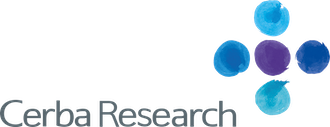As the leader in NGS sequencing among private players, Cerba has adjusted its organisation to serve the new national objectives and has reduced the time required for complete sequencing of the virus to a third.
Today, with the appearance of variants and very large-scale vaccination, it appears that controlling the epidemic requires a more systematic approach to high-throughput sequencing of the virus, known as NGS (Next Generation Sequencing), in order to obtain a detailed, real-time characterisation of the epidemiology and of the circulation of the virus in France.
Cerba HealthCare, a reference player in medical diagnostics, supports the Health Authorities in their desire to extend NGS sequencing of SARS CoV-2 to private laboratories qualified to identify, monitor and study the variants, in close collaboration with the National Reference Centre (CNR) and Santé Publique France.
Reflecting the mobilisation and flexibility shown by the Group since the beginning of the pandemic, the Cerba teams have reduced the time required for the complete sequencing of the virus to a third and share the results with the CNRs within a week.
With its Cerba reference laboratory and its network of 450 local Cerballiance laboratories, the Group shows historical expertise in specialised biology, an unequalled capacity in the private sector with ten NGS sequencing platforms, and access to a large number of samples representative of the population in the various health regions. These three characteristics have already led Cerba HealthCare to play an important role in the fight against the pandemic. They have also enabled the Group to feed the first Flash studies by providing numerous sequencing data and thus contributing to a better characterisation of the epidemiological data on which the decisions of the Health Authorities are based.
“We are pleased that private players are allowed to continue their participation in the national virus sequencing effort. On the one hand, France has the technical means and expertise to shine in this field, and on the other hand, the scale of the health crisis encourages the mobilisation of all players, both public and private, that are able to contribute,” comments Sylvie Cado, CEO of Cerba. “Cerba is fully mobilised to complement the efforts of the national reference centres in terms of NGS sequencing, with the dual objective of expanding the country’s capacity to curb the epidemic and providing input for epidemiological studies. Sequencing is of course a matter of expertise and equipment, but it is important to emphasise its purpose: to identify and track the spread of new variants allows us to delay as much as possible their circulation within the population, and to hasten the adaptation of diagnostic capacities and possibly the vaccination strategy.”
The sequencing of SARS CoV-2 is in line with the strategy of the Group, which in 2013 was the first private player in France to have a high-throughput sequencing platform. Used in fields as varied as oncology, infectious pathologies and constitutional genetics, expertise in high-throughput sequencing enabled Cerba to develop the non-invasive prenatal diagnosis (NIPD) test in 2013, a genetic test that detects trisomy 21 thanks to the DNA circulating in the maternal blood.
Cerba has been carrying out high-throughput sequencing of the SARS CoV-2 virus since October 2020 as part of its specialty clinical trial biology activity, contributing to various studies dedicated to vaccines or anti-COVID therapeutic approaches.

